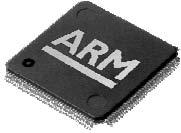Russian Startup Develops x86 Emulator for ARM, Could Be Great for Windows RT Devices
Emulators are a fantastic tool to get antique Atari ST, Amiga and C64 games to run on your PC. In the future, there may be an emulator that is solving ARM headaches.
It is entirely unclear how consumers will react to the availability of Windows RT notebooks: systems that will be running on ARM architecture rather than Intel or AMD x86, such as the Surface RT. Even if it is Windows that will be showing up on that screen, you won't be able to run the typical x86-designed application on these systems, which could be a significant hurdle for the adoption of ARM in this space.
A Russian startup said it may have a solution for this problem. Elbrus Technologies reportedly developed an x86 emulator that runs on ARM systems and delivers 40 percent native ARM performance for x86 applications. That may not be enough to run Photoshop, but Elbrus noted that it could hit 80 percent by the end of 2014.
Realistically, 40 percent or even 80 percent is just a band-aid, workaround and just a short term solution for those who continue to rely on Windows applications on an ARM device. For ARM, this is not quite the desired outcome of its march into the x86 arena: In the end, it will have to convince software makers to build fast and efficient applications for ARM, and not x86 applications that run with the help of an emulator on its notebooks.
Contact Us for News Tips, Corrections and Feedback
Get Tom's Hardware's best news and in-depth reviews, straight to your inbox.

Wolfgang Gruener is an experienced professional in digital strategy and content, specializing in web strategy, content architecture, user experience, and applying AI in content operations within the insurtech industry. His previous roles include Director, Digital Strategy and Content Experience at American Eagle, Managing Editor at TG Daily, and contributing to publications like Tom's Guide and Tom's Hardware.
-
LuckyDucky7 It would be great news, but who is going to approve it?Reply
Not I, said the Apple, I'm interested in keeping my platform 100% closed.
Not I, said the Microsoft, I'm working on forcing all my customers to a closed platform.
Android will most certainly get this, though- that much is certain, but Android is not where this is needed. -
PhilFrisbie Yes, it is doubtful Microsoft would approve this for their app store.Reply
BTW, now that Microsoft seems to want to become the next Apple, I was thinking of conjunctive names for them; how about Microple or Micrapple? ;) -
xaephod Why work so hard to use an ARM when you can use a low powered intel atom? I know intel has chips that run at 15w. Arms are pretty slow anyways.Reply -
Zingam_Duo PhilFrisbieYes, it is doubtful Microsoft would approve this for their app store.BTW, now that Microsoft seems to want to become the next Apple, I was thinking of conjunctive names for them; how about Microple or Micrapple?They have it already: it is Micro and it is Soft, just like Bill Gates' thingy! ;)Reply -
mikenygmail PhilFrisbieYes, it is doubtful Microsoft would approve this for their app store.BTW, now that Microsoft seems to want to become the next Apple, I was thinking of conjunctive names for them; how about Microple or Micrapple?Reply
Microdrone? Micrap? Microverpriced? :) -
adbat Well I think in 2014 40% would be enought to run legacy software and games - the question is what about graphic preformance and emulation.Reply
I would be cool to have a win 98 and xp emulation on a phone all the clasic at your hand. -
lathe26 We've been down this road before with Intel's Uranium processor and DEC's Alpha processor (and others).Reply
I'll wait ans see if we go anywhere new this time. -
winterspan "Why work so hard to use an ARM when you can use a low powered intel atom? I know intel has chips that run at 15w. Arms are pretty slow anyways."Reply
I can see Apple buying this company (just like the PPC emulator Rosetta) and using it for a next-generation 1lb macbook air. A new SoC using the ARM Cortex A15 cores (like the Samsung Exynos 5x00) will easily be competitive with Intel's Atom for performance and use less power.
"We've been down this road before with Intel's Uranium processor and DEC's Alpha processor (and others)."
Apple's transition from PPC to X86 Rosetta seemed to be successful... -
sean1357 They should thinking about to run on FPGA chips.... All ARM and Intel chips are always slow...slow...Reply -
adbat xaephodWhy work so hard to use an ARM when you can use a low powered intel atom? I know intel has chips that run at 15w. Arms are pretty slow anyways.It's no whare near as energy efficient as arm, but intel will get there.Reply
The real reason for this is keep choice - with AMD not competing with INTEL in the desktop segment it would be good for the giant to have an equal opponent. If they will be left alone (all thing seems to be heading that way) they we will pay for it - and progress will be halted (slowed down).
